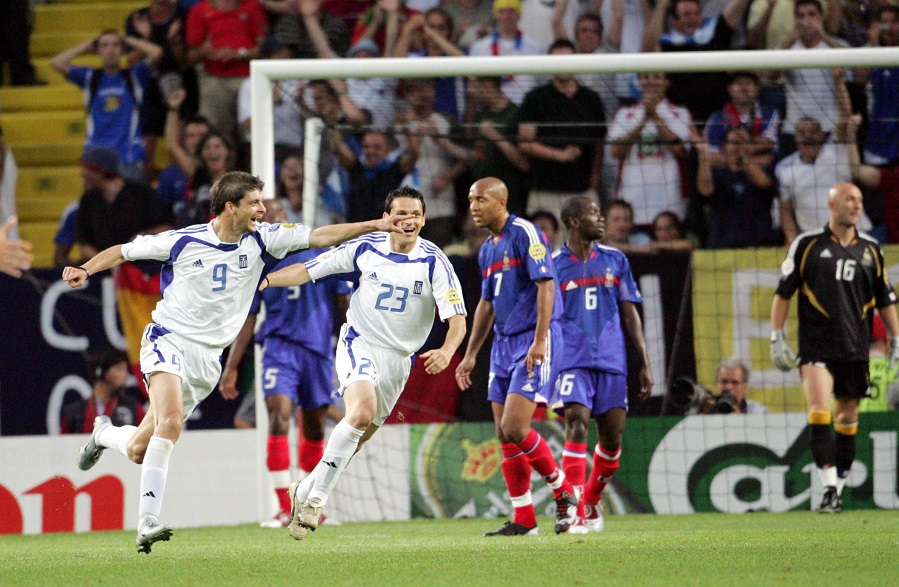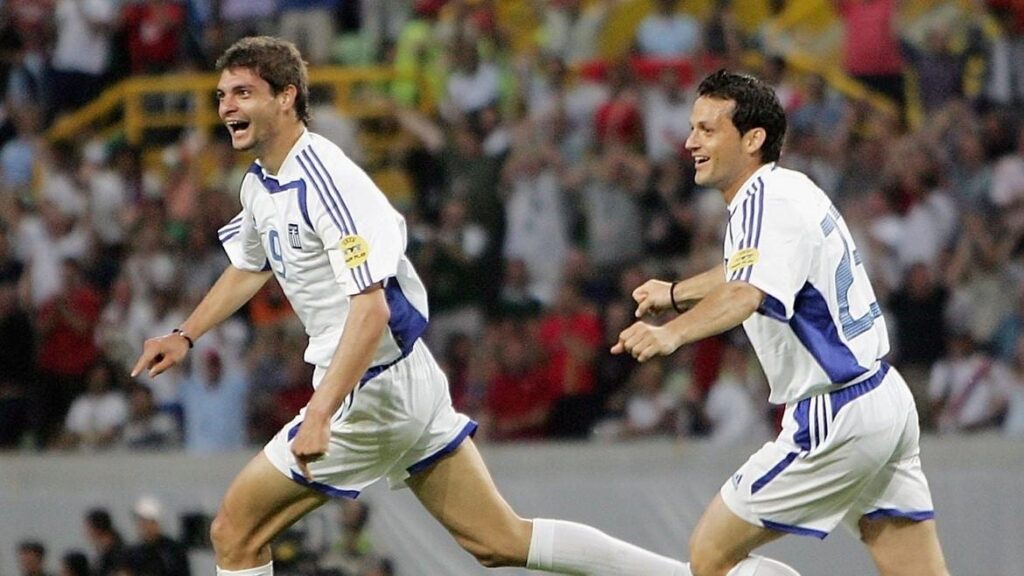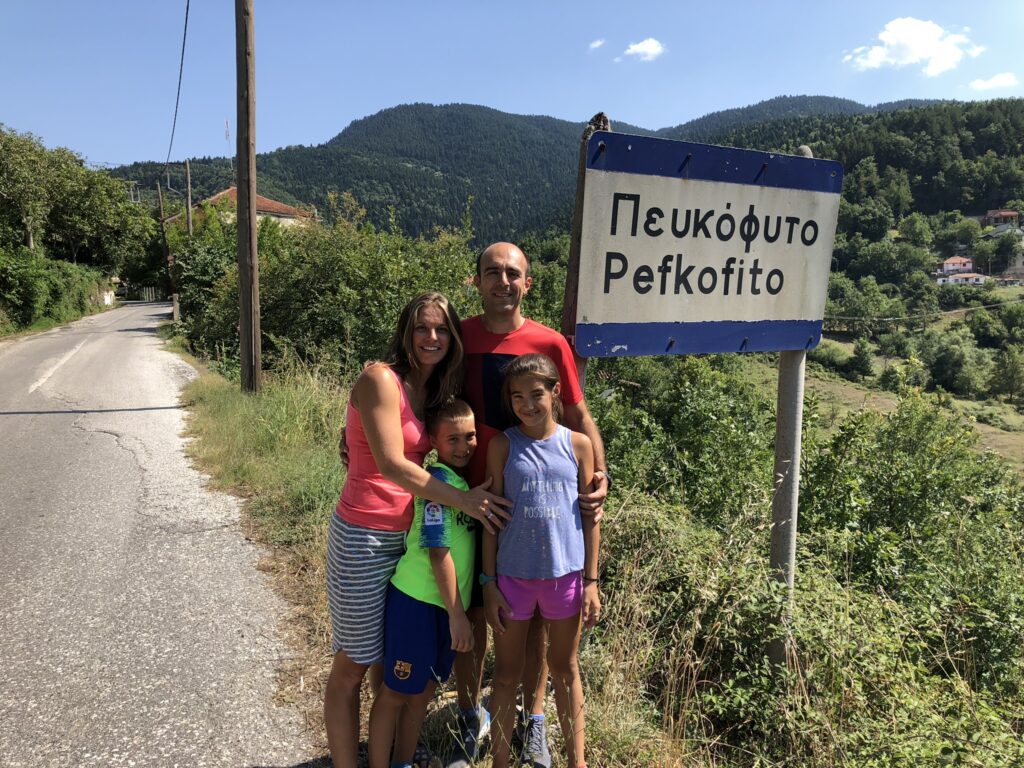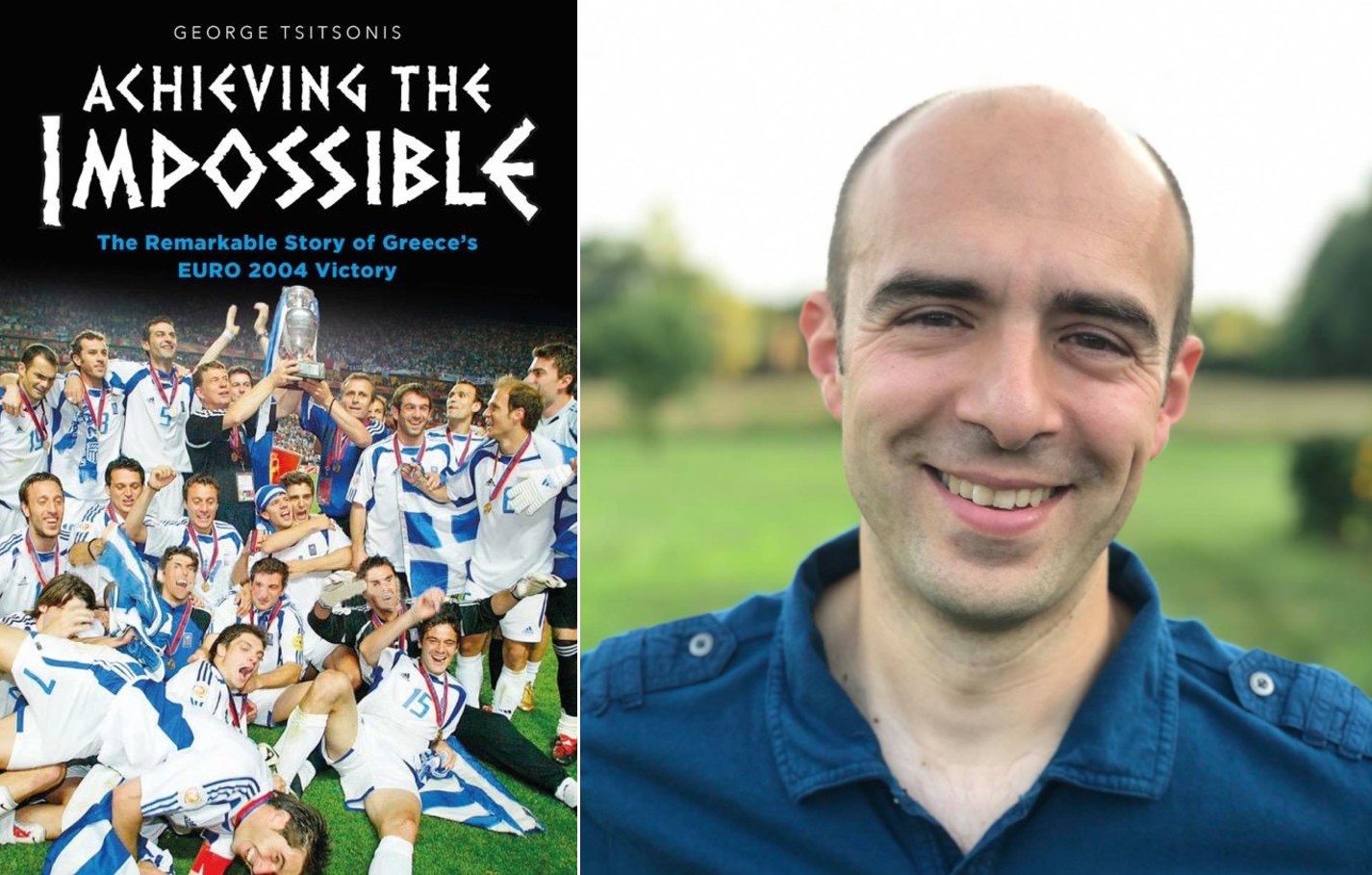Greece’s 2004 Euro’s campaign. A 31 day journey filled with excitement, anxiety and, most importantly, hope.
July 4 marks a historic day for modern sport in Greece after the Greek national football team were declared champions of Europe, beating Portugal and a host of other countries to lift the Euros trophy.
The Greek Herald spoke with George Tsitsonis; A Greek American football journalist and author who has spent the past few years interviewing players, managers and match officials to retell Greece’s magical football campaign.
What specifically prompted you to write the book, ‘Achieving the Impossible’?
A few years ago I was taking a trip down memory lane wanting to watch and read about Greece’s victory at EURO 2004. There was decent amounts of coverage in Greek, but I soon found the dearth of anything comprehensive in the English-language. There were some good articles written, however they were few and far between. Not only that, but some of the coverage was overly simplistic speaking about a a negative team that did nothing but defend to win a European championship. I was looking for a more nuanced look.
Initially, I thought I would put something together for AGONAsport.com, a site I was working for that covers Greek sport in English. As I delved into the research though, the history of the national team and the way the 2004 team came together began to truly fascinate me. I then began entertaining the idea of a book. I did enough to put together the first chapter and then was motivated to carry on.

What were some of the most gratifying moments when writing the book?
It was an honour to write this book and cover one of the greatest sporting successes, if not the greatest, in Greek history. To be able to speak with individuals such as Giorgos Karagounis, Stelios Giannakopoulos, Kostas Katsouranis, Nikos Dabizas, Fanis Katergiannakis, and Ioannis Topalidis was pure joy.
Listening to players describe their emotions as the team went on that run and for example what the players felt as the bus brought them to the stadium on the day of the final was incredible. That insight was priceless and gave me a glimpse into what it must have felt like to be doing something so historic for your country.
Watching the matches again and writing about them was just amazing. I still get goosebumps. The entire process allowed me to relive those magical days in June and July of 2004, a time as Greeks we will never forget.
Similarly, did you encounter any difficulties when writing the book?
There were a few. I do not possess a big, journalistic name and while I have some connections in Greece, they are few. Thus, convincing individuals to speak with me was at times quite difficult. For the most part, people were willing to take part after they saw this was a serious project. I live in the United States so being able to land down interviews was also a challenge as everything had to be done remotely.

Not wanting to be too negative, but to be honest, it must be said that the Hellenic Football Federation (EPO) were of little to no help throughout the entire process. Emails and communication went unanswered or there were always dead ends. It was striking to me that I would receive responses from UEFA and the Portuguese and Spanish football federations, but not from Greece!
Released to the public in June, what has been the response from football fans of your book?
I have received so many wonderful messages from Greeks across the globe, from Australia to the United States and Canada to the UK. There have even been people from places like Argentina, South Africa, and South Korea who have reached out. All of them have been so gracious in their praise of the book. A common theme in the feedback I have seen on social media or through direct emails has been a real gratitude for allowing those readers to relive the tournament.
The response to the book has been so overwhelmingly positive and I am indebted to every single person who has taken the time to read it. It really means the world to me.
Why do you think an event like Greece’s 2004 Euro campaign should be recorded and reminisced upon by Greeks today?
We must learn from both the positive and negative portions of our history. EURO 2004 was undoubtedly a positive moment. It truly showcased what Greeks and those of us of Greek descent can do when we are organised and united.

While this was one instance of one team in one sport, I’m convinced it can be extrapolated to much larger situations in our society. Infighting, distrust, and lack of planning will hold us back like it did with so many Greek teams of the past.
However, once unity, trust, and strategic planning came to the fore, the results were truly spectacular. There is something special wherever a Greek heart beats and this team showed what is possible when we pull together towards a common goal.
Everyone has a “I was here when this happened” moment for the Euro 2004 grand final match. How were you watching the final?
My family and extended family all gathered at my parents house on the day of the final. We had a full barbeque in the lead up to the match and spent most of the day watching Greek satellite television and listening to all those in Greece who were offering up predictions of the game.
Like many others, I had grandparents who had never watched a football match in their lives, yet they lived the game like the most hardcore of supporters. Each moment has its own place in my heart. The joint joy experienced once Angelos Charisteas scored, running out of the house with my arms outstretched yelling to the heavens, and then the tears of happiness we all had once the final whistle had been blown. Moments of life that none us will ever forget.

Looking at the current Greek national team, what do you think are some ways they can learn from players of the 2004 campaign?
Even if it seems that Greek players have developed a sort of defensive DNA, I will leave the strategy to the coaches, the ones who can see what characteristics their players have and thus form their tactical decisions based on that. What I will say is that the current Greek side would do well to heed the lessons of that EURO 2004 group. The biggest of those was to be a family.
That was a side with big characters, but as Nikos Dabizas told me, they all put ‘the us above the I.’ It was a team who enjoyed each other’s company off the pitch and that helped them immensely on it. Otto Rehhagel’s influence was massive, but the foundation laid consisted of a band of brothers who fought for one another and who truly believed they could defeat any opponent.
